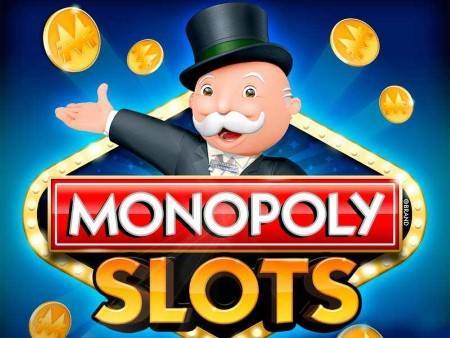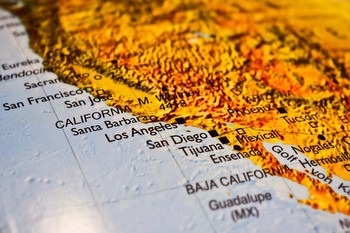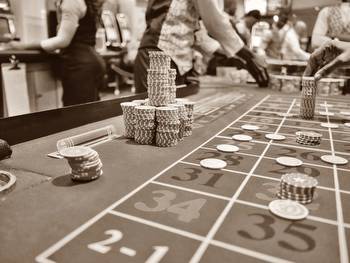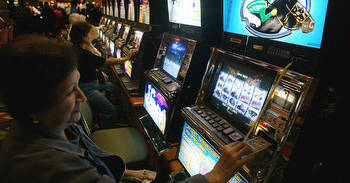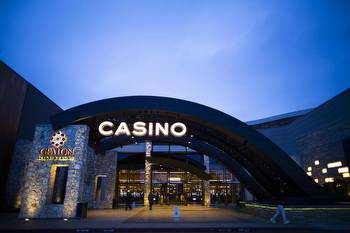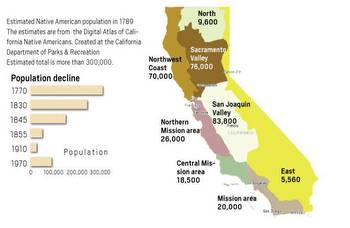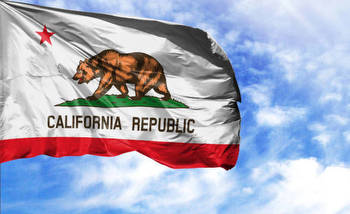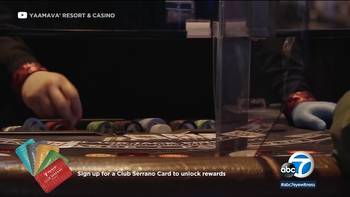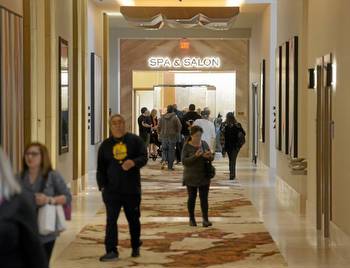The online gambling industry wants into California
Do your eyes glaze over every time a campaign ad flashes across your screen about Proposition 27 or 26?
Both sides have spent a combined $320 million to get your vote, but their ads don’t always paint an accurate or complete picture.
Here is a more realistic synopsis.
In 2018, the U.S. Supreme Court legalized sports betting outside of Nevada, meaning gamblers could now bet on football and baseball and almost all other sporting events.
Now each state is free to decide for themselves, and since the Supreme Court ruling, 34 states and the District of Columbia have legalized sports betting either online or in-person.
Both Prop 26 and 27 would legalize sports betting in California if passed.
The difference is that Prop 26 only legalizes sports betting in person and Prop 27 makes it legal to gamble online.
Prop 27 is being pushed by the out-of-state online gambling industry and will generate billions of dollars for their companies, most of which will leave the state.
Prop 26 is backed by many of the Native American tribes who run the larger casinos. The tribal casinos will see an influx of tens of millions of dollars on sports betting done at their casinos, and most of it will stay in the state.
In a strange twist of fate in these partisan times, the state Republican and Democratic parties oppose Prop 27 as do their leaders in the Assembly and Senate. The state GOP also opposes 26, while the Democratic Party is neutral.
The official line on the propositions
Prop 26, or the “California Sports Wagering Regulation and Unlawful Gambling Enforcement Act,” would allow tribal casinos and the state’s four horse race tracks to offer sports betting. It would also allow tribal casinos to expand their gambling offerings to roulette and dice games.
A YES vote on 26 measure means according to the California Attorney General:
- Four racetracks could offer in-person sports betting.
- Racetracks would pay the state a share of sports bets made.
- Tribal casinos could offer in-person sports betting, roulette, and games played with dice (such as craps) if permitted by individual tribal gambling agreements with the state.
- Tribes would be required to support state sports betting regulatory costs at casinos.
- People and entities would have a new way to seek enforcement of certain state gambling laws.
A NO vote on 26 measure means:
- Sports betting would continue to be illegal in California.
- Tribal casinos would continue to be unable to offer roulette and games played with dice.
- No changes would be made to the way state gambling laws are enforced.
Prop 27 is called “California Solutions to Homelessness and Mental Health Act” and would legalize online sports betting outside of Native American lands, and allow gaming companies to offer online sports betting if they partner with a tribe.
A YES vote on 27 measure means as prepared by the CA Attorney General:
- Licensed tribes or gambling companies could offer online sports betting over the Internet and mobile devices to people 21 years of age and older on non-tribal lands in California.
- Those offering online sports betting would be required to pay the state a share of sports bets made.
- A new state unit would be created to regulate online sports betting.
- New ways to reduce illegal online sports betting would be available.
A NO vote on 27 measure means:
- Sports betting would continue to be illegal in California.
- No changes would be made to the way state gambling laws are enforced.
What does your vote mean?
If you vote yes on both Prop 26 and 27 both new laws will go into effect because they do not necessarily cancel each other out. But it is widely accepted that the tribal casinos will file a lawsuit to keep Prop 27 from becoming law and to prevent online betting.
If you vote no on both Prop 26 and 27, sports betting online or in person will remain illegal in California.
If you vote yes on Prop 27 and no on Prop 26, anyone with a cell phone will be able to gamble online on sporting events.
If you vote yes on Prop 26 and no on Pro 27, betting on sporting events will have to be done in person at a casino. Prop 26 also has a provision in it that might force the state’s 84 card rooms out of business.
Who is for and against Proposition 27 and where does the money go?
According to a report done by McClatchy, “Online gambling companies: FanDuel, DraftKings and other giants of internet wagering have contributed $150 million to pass Proposition 27, which would open up online sports betting — and raise hundreds of millions in new taxes for homeless programs. Proposition 27 says the companies would have to partner with a tribe. Tribes could also operate online sports betting on their own.”
Tribes who run large casinos have contributed $118 million into Prop 26. According to McClatchy, “among the big donors is the Yocha Dehe Wintun Nation, owner of Cache Creek Casino. Tribes argue that the rival plan, promoted by online gambling companies, would harm their business and erode their hard-won economic gains.”
But not all the California tribes are in lock step against Prop 27.
The Tachi Yokuts that runs Tachi Palace in Kings County is one of three tribes who have joined the “Yes on 27” campaign. Tachi says online sports betting would generate far greater prosperity for their people. Limiting sports betting to in-person they say will favor the larger casinos.
However the Tule River Tribe that runs Eagle Mountain in Tulare County outside of Porterville is steadfastly against Prop 27.
The Desert Sun stated, “The reason for the tribes’ mobilization against the online measure is clear. Online sports betting accounts for between 85% and 90% of the total market in states where it’s legal,” we’re going to see decreases in people going to the physical casinos, and I think that’s the big concern for the tribes here.”
Eagle Mountain is relocating to a location right off Highway 65 and enlarging their casino.
Homeless advocate organizations are also split on Proposition 27. Some have endorsed the Yes on 27 campaign along with the mayors of Oakland, Sacramento and Fresno’s Jerry Dyer who all are battling their own homeless crisis.
But according to a report by McClatchy, “some homeless advocates have branded Proposition 27 a cynical ploy that won’t solve the problem. The online companies would take their profits out of the state and leave just a few crumbs for homeless programs, they argue.”
The legislative budget analysis has predicted online betting would generate approximately $500 million annually.
But California allots $10 billion in the state budget to go towards homelessness.
Governor Gavin Newsom said during a speech at a Los Angeles housing project that, “maybe it will provide a few dollars.”
“It’s not a homeless initiative, and I know Angelenos can read between the lines and know better,” he said.
Card room are also opposed to Prop 26. They fear that Prop 26 would put them out of business, placing thousands of jobs at risks and putting a dent in local governments’ revenue streams. They have contributed $41 million to oppose Prop 26 saying they are concerned about a provision that would allow tribes to sue card rooms for alleged improprieties in their gaming operations.
Who wins?
Historically, California initiatives are more likely to fail than pass. Add to that, when voters are confused by two dueling initiatives the likelihood of them passing goes down even further
In a poll taken by FM3, a company used by Visalia for past ballot measures, 58% of voters opposed Prop 27 and 33% said they were likely to vote yes.
And so what is expected to be the costliest initiative campaign in U.S. history may all have been for naught.
If Proposition 26 passes, tribes that run casinos will be able to increase their profits by the tens of millions a year through in person sports betting.
But online betting is a horse of a different color.
The gambling industry has been desperate to infiltrate California’s market since the 2018 Supreme Court decision. With a population of 40 million, California is the goose that laid the golden egg and if Proposition 27 passes we will be handing over billions of dollars a year to the out-of-state online gambling industry.
And so naming Prop 27 “California Solutions to Homelessness and Mental Health Act” could be interpreted as less than honest.
According to McClatchy, “Amid the confusion, one thing is clear: Online sports betting would represent a staggering expansion of gambling in California. Tens of billions of dollars would likely be wagered. The online companies’ share, after paying off the winning bets, would come to an estimated $3.2 billion a year, said D.J. Leary, director of business development at market research firm Eilers & Krejcik Gaming.
You exponentially increase the number of people betting on sports,” said Richard Auxier, an analyst with the Urban Institute think tank.”







